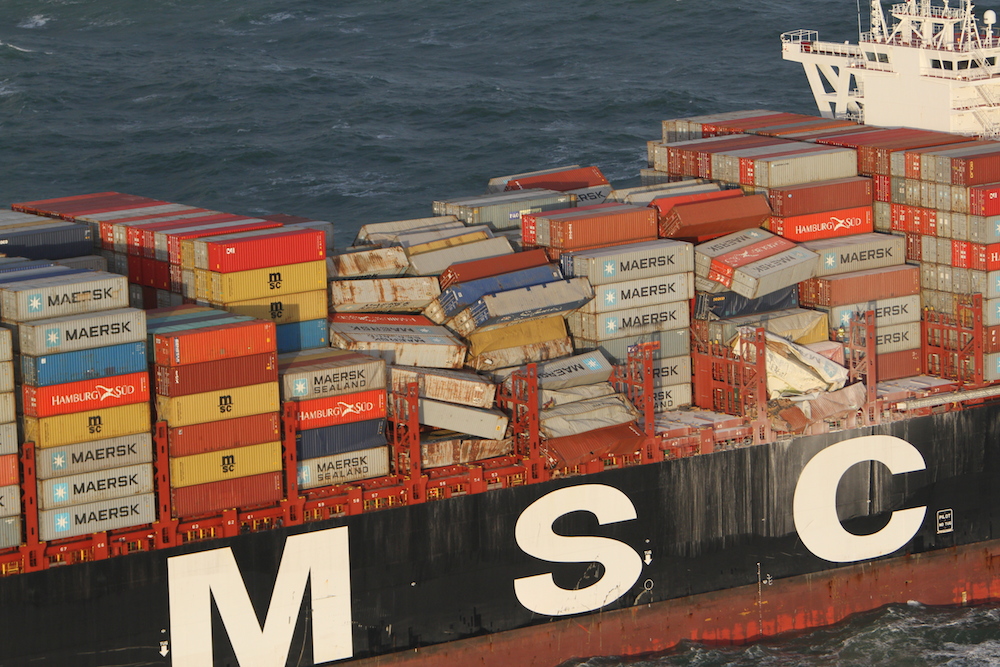Campaigners obtain list of 800 tonnes of cargo shed in Waddenzee

Campaigners have won a five-year battle to release a list of 6,000 locations where debris from a container ship was scattered on the seabed of the Waddenzee.
The MS Zoe, one of the largest container ships in the world, shed 342 containers full of cargo after a storm blew up in the shallow sea on January 1, 2019.
Toys, chairs, flat screen TVs and light bulbs littered the beaches of the north coast and Wadden islands, which are a World Heritage Site, after they were washed up from the containers.
The Waddenvereniging, a volunteer organisation which monitors the area, estimates that 800 tonnes of debris – around one-quarter of the total lost – is still lying on the seabed.
The Dutch government classed the lost cargo as “litter”, meaning there is no obligation to clear it up. But former infrastructure minister Cora van Nieuwenhuizen refused to publish a list of 6,000 locations where debris had been found, on the basis that it contained commercially sensitive information.
Target list
The MSC Zoe’s owners compiled the so-called Master Target List after surveying a 3,000 m2 area with a sonar scanner.
Leiden Advocacy Project on Plastic (LAPP), a group of Leiden University law students that work with non-governmental organisations (NGOs), obtained the list through the freedom of information procedure WOO.
Ellen Kuipers, of the Waddenvereniging, told Omrop Fryslân: “We’re thrilled with this, because it means we can search more exactly. Even though it’s five years since the event and things will undoubtedly have changed on the seabed.”
Conservation groups including Stichting de Noordzee, Friese Milieudefensie and Stichting Duik de Noordzee have worked with the Waddenvereniging to set up the CleanUpXL project, which aims to clear the seabed of debris within five years.
Kuipers said the ruling would make it easier to obtain details of future large-scale losses of cargo at sea. “The shipping operator and the government must immediately publish what was in the containers and where it is lying. That goes for any impact it has on the environment,” she said. “It’s a really important judgment.”
Thank you for donating to DutchNews.nl.
We could not provide the Dutch News service, and keep it free of charge, without the generous support of our readers. Your donations allow us to report on issues you tell us matter, and provide you with a summary of the most important Dutch news each day.
Make a donation